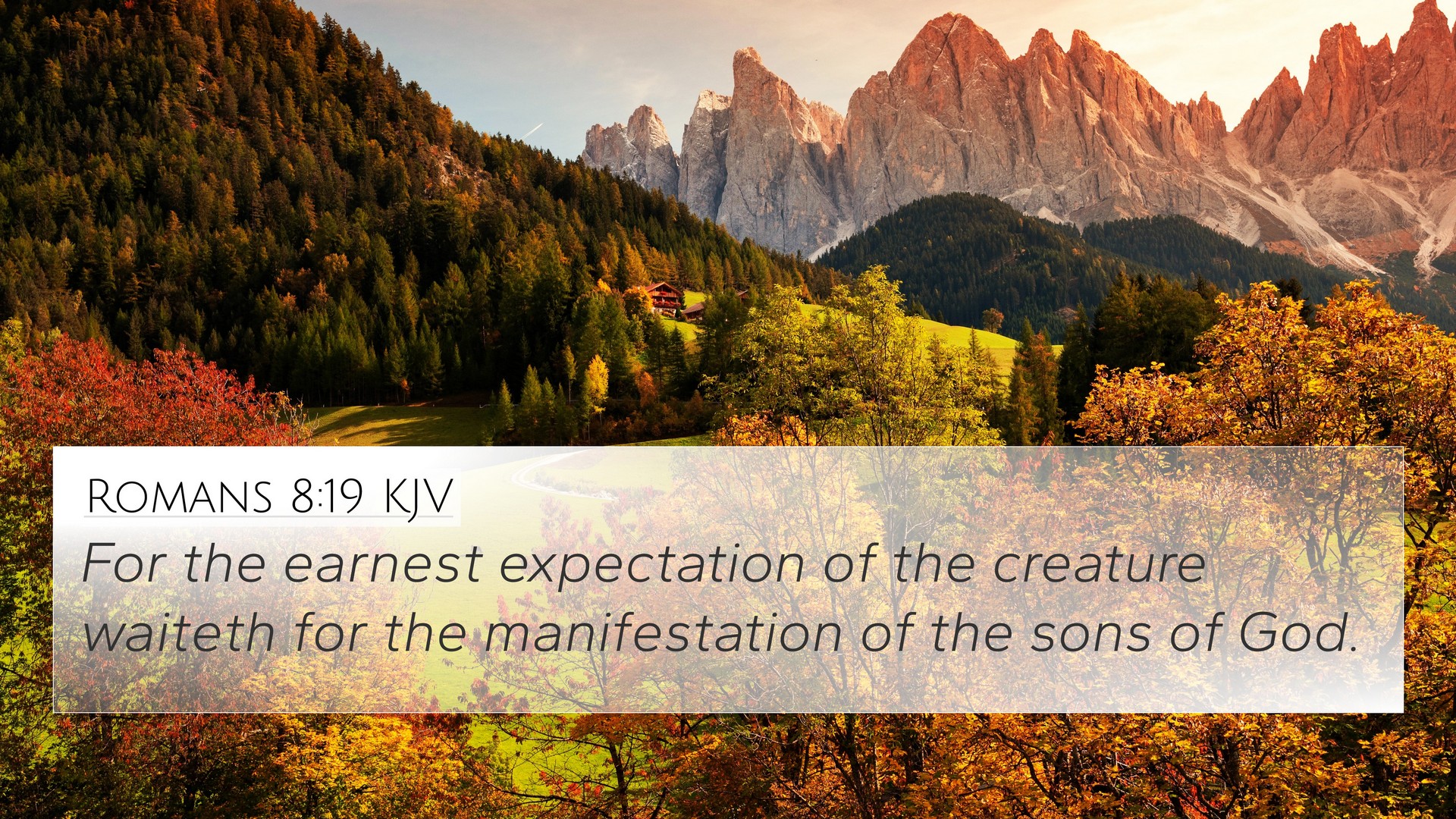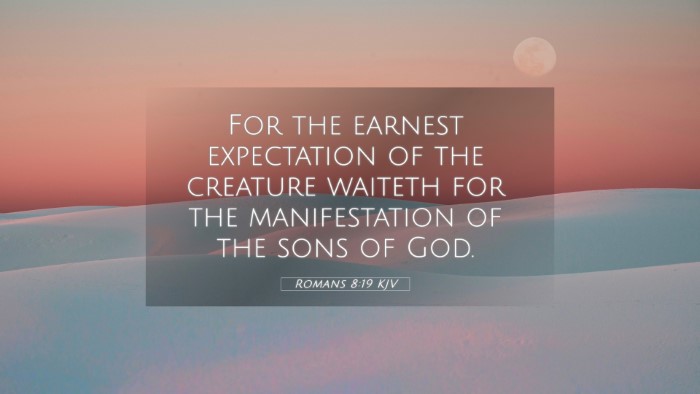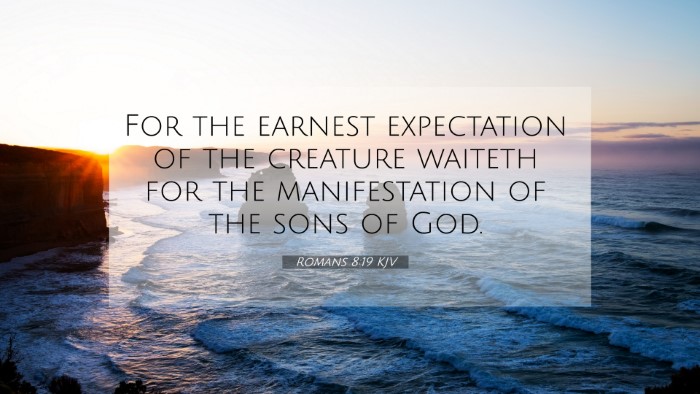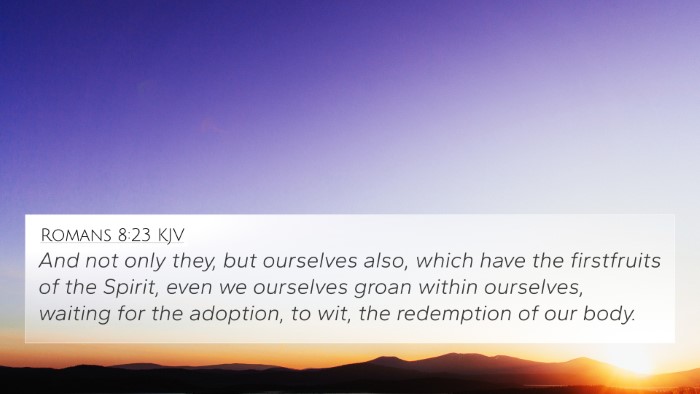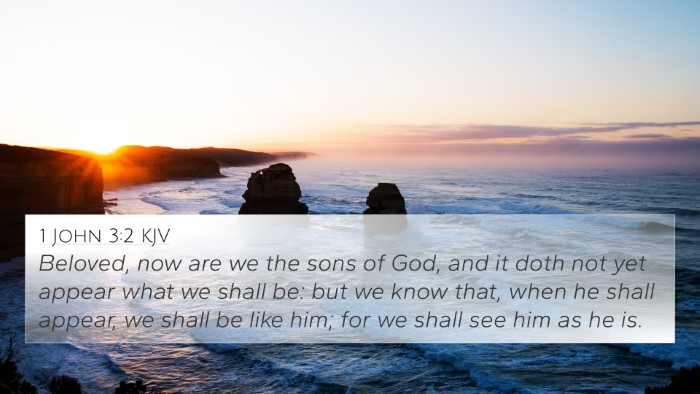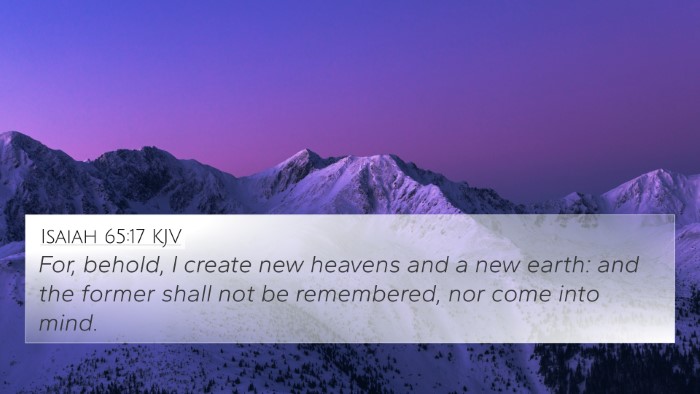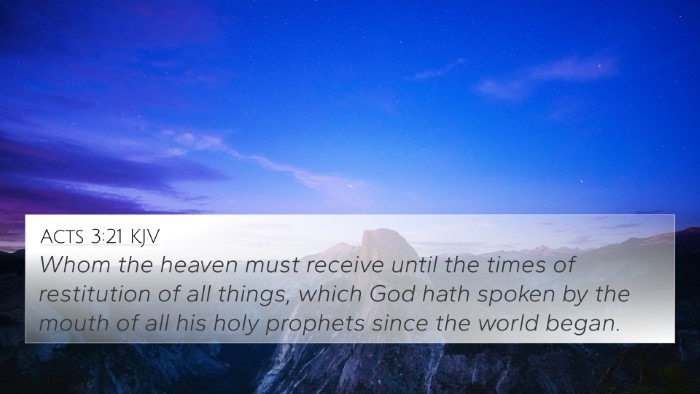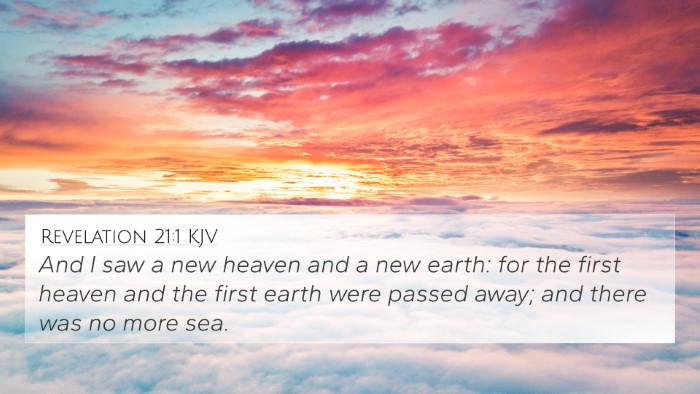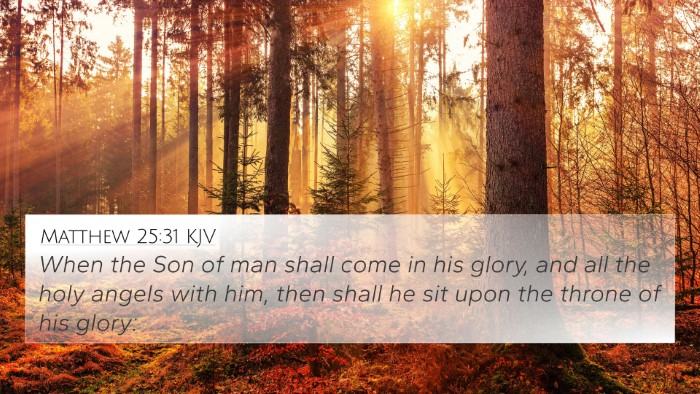Understanding Romans 8:19
Romans 8:19 states: "For the earnest expectation of the creature waiteth for the manifestation of the sons of God." This verse encapsulates the deep desire of creation for liberation and restoration, signaling a profound eschatological hope within the Christian faith. In exploring this verse, we delve into various aspects of biblical interpretation and thematic connections across the Scriptures.
Contextual Overview
The Apostle Paul, in the book of Romans, addresses the transformative work of Christ and the implications for both believers and the creation. The verses surrounding Romans 8:19 highlight themes of suffering, glory, and the hope that accompanies the believer's future.
Key Themes in Romans 8:19
- Expectancy of Creation: As noted by Matthew Henry, the "creature" refers to all of creation, which longs for the revelation of God's children who will be restored and glorified. This reflects the hope embedded in all living things.
- Manifestation of the Sons of God: Albert Barnes highlights that this manifestation signifies the ultimate redemption and revelation of believers, aligning with the overall message of Christ’s resurrection and the promise of eternal life.
- Contrast of Suffering and Glory: Adam Clarke comments on how the current suffering is contrasted with the anticipated glory that will be revealed, providing a perspective on the challenges faced by believers.
Bible Cross-References
To gain a deeper understanding of Romans 8:19, one can explore various cross-references throughout the Bible that enhance its meaning:
- Romans 8:21: "Because the creature itself also shall be delivered from the bondage of corruption into the glorious liberty of the children of God."
- 2 Corinthians 5:2: "For in this we groan, earnestly desiring to be clothed upon with our house which is from heaven."
- Colossians 1:20: "And, having made peace through the blood of his cross, by him to reconcile all things unto himself."
- Revelation 21:1: "And I saw a new heaven and a new earth: for the first heaven and the first earth were passed away."
- 1 Peter 5:10: "But the God of all grace, who hath called us unto his eternal glory by Christ Jesus, after that ye have suffered a while, make you perfect."
- Isaiah 65:17: "For, behold, I create new heavens and a new earth: and the former shall not be remembered, nor come into mind."
- Galatians 4:7: "Wherefore thou art no more a servant, but a son; and if a son, then an heir of God through Christ."
Connecting Themes Across the Scriptures
Analyzing Romans 8:19 in tandem with these references leads to a rich understanding of the interconnectedness of biblical themes—particularly those concerning creation, suffering, redemption, and the glory of God’s children. This thematic Bible verse connection illustrates the consistent message throughout both the Old and New Testaments, emphasizing God’s plan for redemption and the ultimate restoration of all things.
Methods for Effective Cross-Referencing
Understanding how to find and use cross-references is instrumental in deeper biblical study. Here are some tools and methods to enhance your Bible study:
- Bible Concordance: A valuable tool for identifying verses and their connections.
- Bible Cross-Reference Guide: Helps in linking scriptures systematically.
- Cross-Referencing Bible Study Methods: Encourages thematic and textual analysis of Bible verses.
- Bible Chain References: Facilitates a thematic approach that connects verses across the Bible.
Conclusion
Romans 8:19 serves as a profound reminder of the interplay between suffering and hope, inviting believers to recognize that all creation eagerly anticipates the fulfillment of God’s promises. By leveraging cross-references and understanding contextual backgrounds, we can yield a richer interpretation of this verse, enhancing our study and bolstering our faith in the process.
